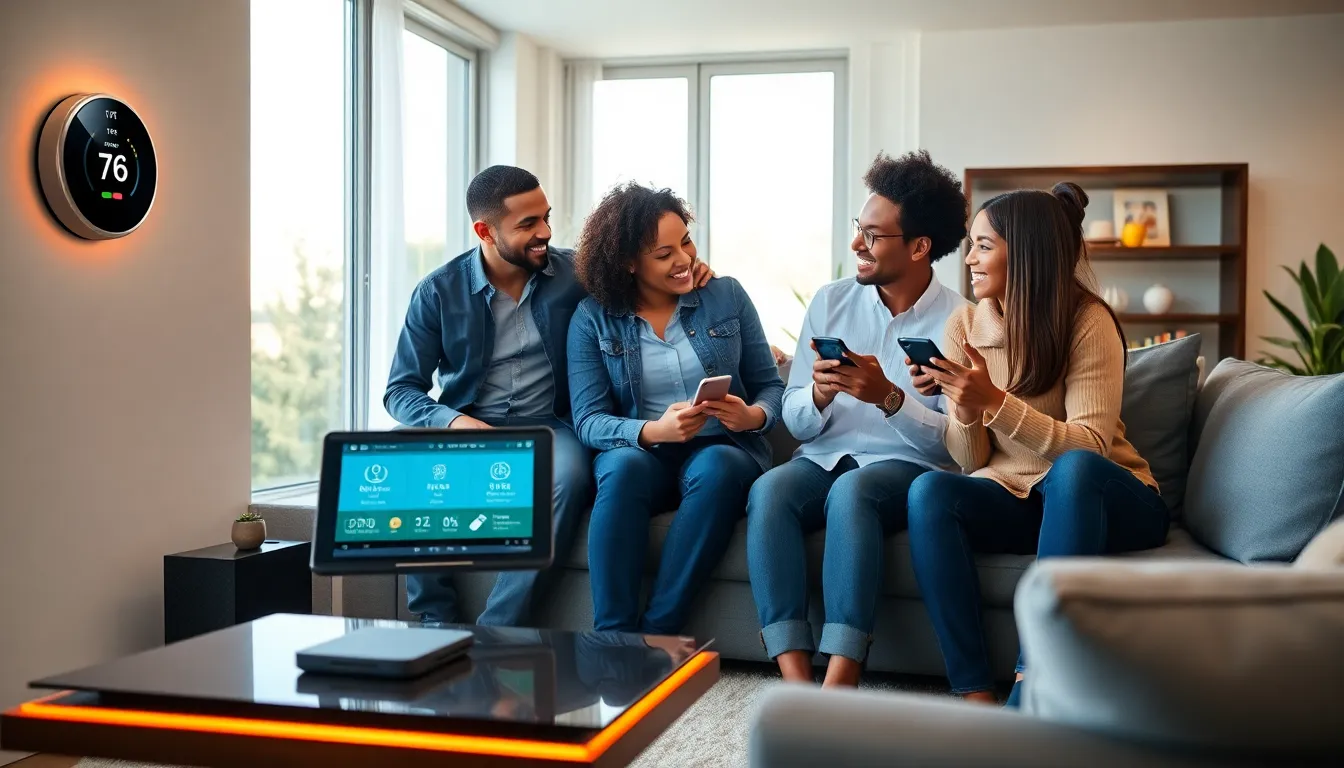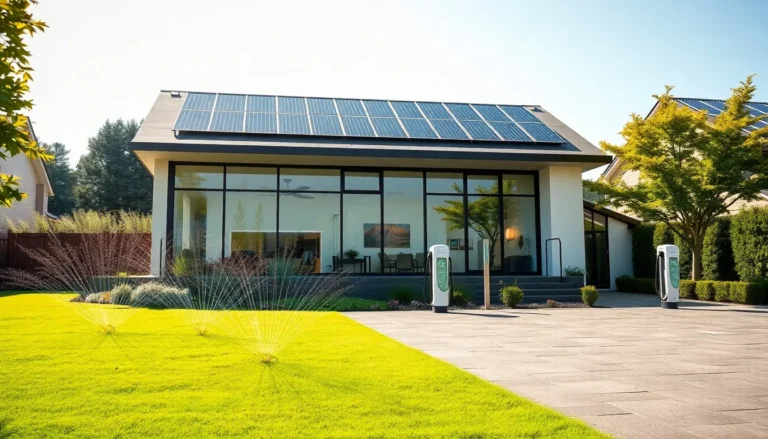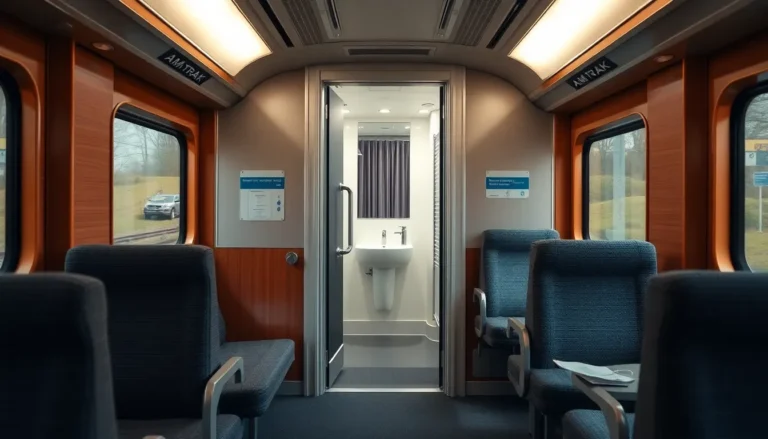Have you ever dreamed of living in a house that thinks for itself? One that adjusts the thermostat while you’re cozied up on your couch, or reminds you to water the plants when it senses dry soil? Welcome to the world of smart homes. Today’s houses are not just four walls and a roof: they’re technological wonderlands. In this guide, we’ll unravel everything you need to know about smart homes for sale, from their features to financing options. So grab your favorite mug of coffee and let’s jump into the future.
Table of Contents
ToggleWhat Is a Smart Home?

A smart home is more than a trend: it’s a revolution in how people interact with their living spaces. Picture this: devices in your home are interconnected through the internet, allowing you to control everything from lighting to security right from your smartphone. This seamless integration makes it easier to manage home systems while enhancing comfort and efficiency.
At its core, a smart home uses smart devices to communicate with one another. For example, smart thermostats learn your heating and cooling preferences, while smart lights can be scheduled to turn on or off based on your daily routine. This not only saves time but can also save you a bundle on utility bills.
Imagine arriving home to a well-lit entryway, with your favorite playlist playing softly in the background, all thanks to your smart home anticipating your arrival. That’s the charm of smart living.
Benefits of Smart Homes
Investing in a smart home opens the door to numerous benefits, making life easier and more enjoyable. Here are some of the standout advantages:
- Enhanced Security: Smart security systems offer real-time surveillance and alerts. Homeowners can monitor their property from anywhere, ensuring peace of mind.
- Energy Efficiency: Smart devices adjust energy usage according to your patterns. This means reduced energy waste, lower bills, and a smaller carbon footprint.
- Convenience: Voice-activated systems streamline daily tasks. Whether it’s turning off the lights or adjusting the heat, automation allows for hands-free control.
- Increased Home Value: As technology becomes more embedded in our lives, smart features boost a home’s market value. Buyers are increasingly looking for homes that offer the latest tech conveniences.
Overall, it’s not just about convenience: it’s about making your life more manageable while promoting sustainability.
Features to Look For in Smart Homes
When searching for smart homes for sale, certain features should be at the top of your checklist. Consider the following essentials:
- Smart Lighting: Look for LED bulbs that can be dimmed or changed in color via an app. These not only add ambiance but can also be programmed to save energy.
- Smart Thermostat: A thermostat that learns your schedule optimizes temperature settings based on when you’re home or away, balancing comfort and energy efficiency.
- Home Automation Hub: This is the backbone of your smart home. A good hub supports various devices and allows for seamless integration.
- Security Systems: Advanced cameras, motion detectors, and smart locks provide robust security and can be monitored remotely.
- Smart Appliances: Washers, dryers, refrigerators, and ovens can now be operated and monitored through mobile apps, adding a layer of convenience to daily chores.
Prioritize features that align with your lifestyle to ensure you make the best decision.
Where to Find Smart Homes For Sale
The search for smart homes can feel daunting, but there are ample resources available. Here are some avenues to explore:
- Real Estate Websites: Platforms like Zillow and Realtor.com allow users to filter listings featuring smart home technologies, making the search easier.
- Local Real Estate Agents: Many agents specialize in smart homes. Their insight can help pinpoint properties that match your criteria.
- Developer Websites: New constructions often feature smart technologies. Check with local builders to see if they offer homes equipped with these features.
- Home Shows: Attending local home and garden shows provides the opportunity to tour smart homes and meet builders and agents committed to this technology.
With the right approach, discovering your dream smart home can be both exciting and rewarding.
Cost of Smart Homes: What to Expect
When it comes to the cost of smart homes, prices can range widely. Several factors impact how much you might pay:
- Location: Urban areas often command higher prices due to demand and land costs.
- Feature Set: Homes with a greater array of advanced technologies tend to be more expensive.
- Age of the Home: Newly constructed homes with integrated smart features generally cost more than older homes with retrofitted technology.
On average, smart homes can cost anywhere from a modest increase in standard home prices to upwards of 20% more based on included technologies. So, setting a realistic budget is essential.
Financing Options for Smart Home Buyers
Financing a smart home might seem straightforward, but buyers should be aware of the nuances in funding:
- Traditional Mortgages: Many lenders treat smart home features as enhancements that could increase a property’s value, which could impact loan amounts.
- Energy-Efficient Mortgages (EEMs): These specialize in financing energy-efficient homes and can help lower monthly costs through a slightly higher loan amount.
- Home Equity Loans: Existing homeowners can finance smart technology upgrades for their homes through equity loans.
- Grants and Rebates: Some programs offer financial incentives or rebates for energy-efficient upgrades. Check with local governments or utility companies for available options.
Understanding these alternatives will empower buyers to make informed financial decisions when investing in a smart home.


